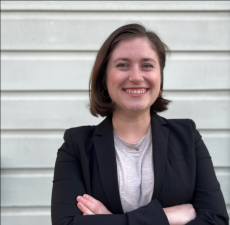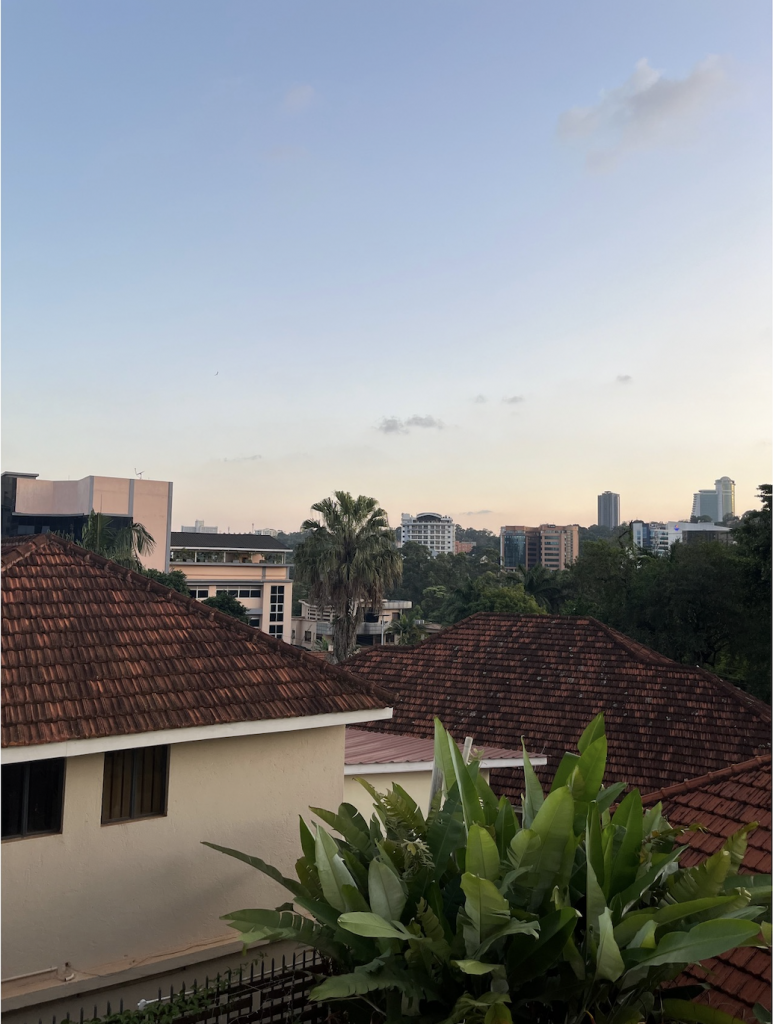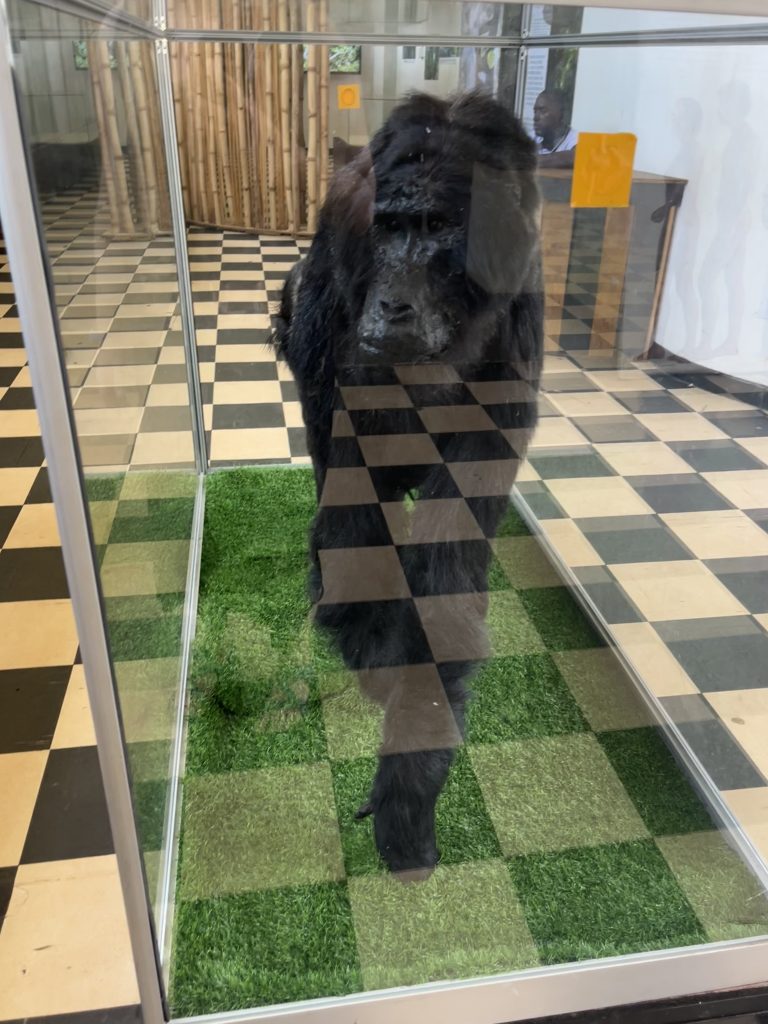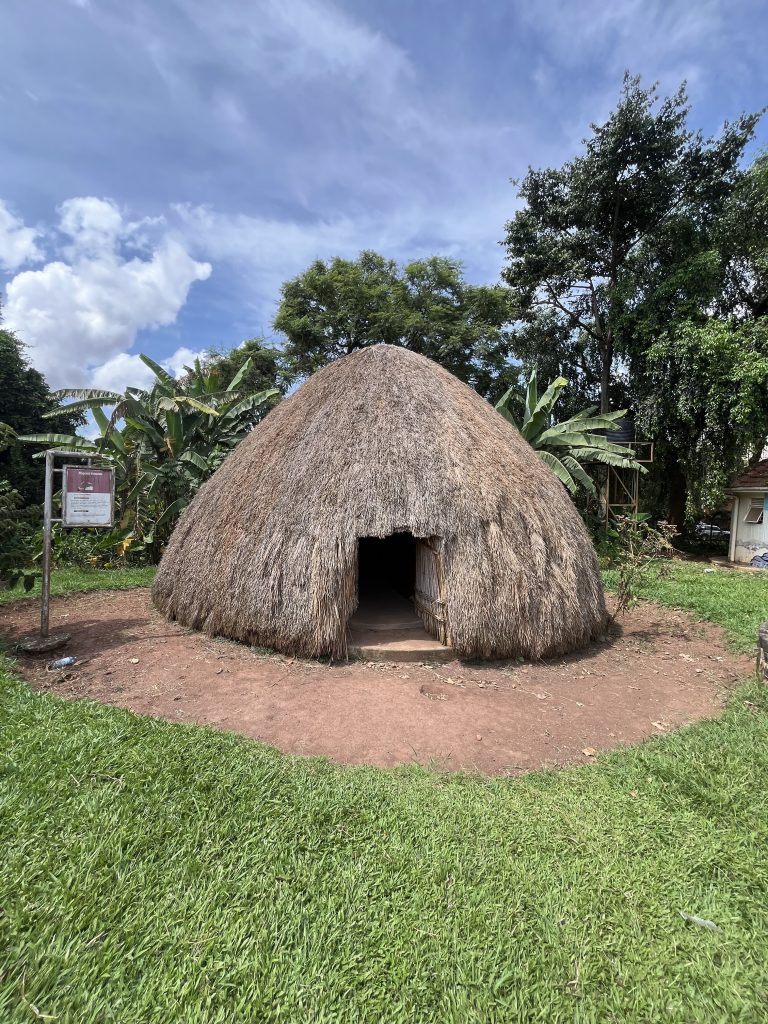After a few teary airport goodbyes and delayed and un-delayed and changed flights, I finally arrived in Uganda to begin my Peace Fellowship. I am grateful to be supporting the Gulu Disabled Person’s Union (GDPU) program that builds accessible toilets and handwashing stations at schools in the district. I will primarily support two GDPU efforts this summer:
1. The monitoring and evaluation of existing latrines and handwashing stations that GDPU has built at schools in the district.
2. The installation of a new latrine and handwashing station and menstrual products incinerator at a school in Kulu Opal.
As someone who studied environmental engineering and is passionate about water accessibility, the opportunity to work for Emma and the GDPU team on this project is an immense privilege. I can’t wait to get started. But before heading to Gulu, I have a few days stopover in Kampala.
On my first morning in Kampala, I visited the Uganda National Museum. I find that a history museum, and what a national government wishes to highlight about their country, can teach you a lot. The museum is an accumulation of many different themes and eras of Uganda. There are exhibits about traditional clothing and foods, excavated archaeological findings, Ugandan Olympians, and geological forces that changed the topography of Uganda over millions of years.
The museum boasts a multi-room exhibit about primates, focusing heavily on the mountain gorilla. Only approximately 1,000 mountain gorillas currently exist on earth, half of which live in Uganda’s Bwindi Impenetrable National Park. The rest of the mountain gorillas live in the Virunga Volcanoes, a region including Rwanda, DRC, and the Mgahinga National Park in Uganda. The exhibit highlights the dedicated Ugandan researchers who are working towards the conservation of these precious animals.
I was definitely surprised by some exhibits. For example, there is a room about Henry Ford, the American founder of Ford Motor Company. The exhibit features an actual Ford Model T car but no written explanation of the connection to Uganda (although I later found out there is a Ford dealership in Kampala). There is an exhibit about why oil is beneficial to the environment and the economy. Curiously, this section was funded by the Uganda National Oil Company. This reminded me of the oil and gas section at the Bullock Texas State History Museum, curiously also funded by the Texas Oil and Gas Company…
In the back of the museum, the Uganda Ministry of Tourism, Wildlife and Antiquities recreated a “Cultural Village.” This series of traditional homes demonstrates indigenous living styles, each aligned with a different region of the country.
As you might be able to see in this photo, Kampala is a city but also very green. I am amazed by how large the flora are. Palm trees and arrowhead plants grow just about everywhere.
The arrowhead plants pictured below are located at the Uganda National Museum. The plant on the left is about 3 feet (1 meter) tall and has leaves about 8 inches (20 cm) long. The plant in the right photo is about 6 feet (2 meters) tall and has 2-foot (60 cm) leaves! In comparison, I have tried again and again to keep an 8-inch (20 cm) tall arrowhead houseplant alive in my apartment in the United States, to absolutely no avail.
I also noticed this phenomenon when I visited Malawi and Tanzania – plants growing to almost comically large proportions, developing uninhibited when planted in the right conditions. In East Africa, it seems like things flourish in places where they are meant to be. I hope this will be true for me this summer as a Peace Fellow, as well.
Posted By Julia Davatzes
Posted May 29th, 2024






6 Comments
Iain Guest
June 1, 2024
Welcome to Uganda Julia! So glad you were able to make it – and look forward to many good blogs about your fellowship. You have a really important role in helping Emma to put the WASH program onto a sustainable footing this year and helping to advance WASH across the entire district of Gulu, not just individual schools. Hopefully, you’ll be able to see a few glaring critters along the way and even hang out in a traditional Ugandan home!
Bobbi Fitzsimmons
June 1, 2024
What a great idea to start at the museum. I know that you have a long bus ride ahead of you to get to Gulu but I think you’ll be delighted when you arrive. Emma is wonderful to work with and perhaps you’ll meet Victoria and some of the ladies of the Gulu butterflies embroidery project. My time there, with these people was some of the best of my travels anywhere! Take in every moment. I look forward to more of your photos. And please say hello to Emma for me.
Mary Ellen Cain
June 3, 2024
Julia, I really enjoyed reading your astute observations on the gorillas, the museum displays and the thriving plantlife in Uganda. I look forward to reading more about life in Uganda and, of course, about the people you meet and your work on the very important latrine and wash projects!
Karen Delaney
June 5, 2024
Julia, the journey to Uganda sounds amazing so far! The work you’re doing with GDPU is so important,
and it’s great that you get to use your environmental engineering skills to make a real impact. The visit to the Museum must have been such a great way to start your fellowship! It’s cool to hear how everything flourishes in East Africa, and I’m sure you’ll thrive just as much this summer. Best of luck with your Peace Fellowship—I can’t wait to hear more about your experience!
Rebecca S
June 5, 2024
So glad to read that your journey has begun. The visit to the museum sounds wonderful! I hope the travel to Gulu went well and that you’re enjoying the first days in person with GDPU – and hopefully some fresh mango!
Delaney Rogers
June 5, 2024
Julia, I hope you have a fantastic time in Uganda. The work Emma and GDPU are doing is so important. I think your previous experience will be incredibly valuable in taking the WASH project to the next level. You have a VERY long bus ride ahead! I loved reading about your time visiting the museum. What a great way to get to know the country you will call home for the next few weeks! I can’t wait to follow your journey this summer!